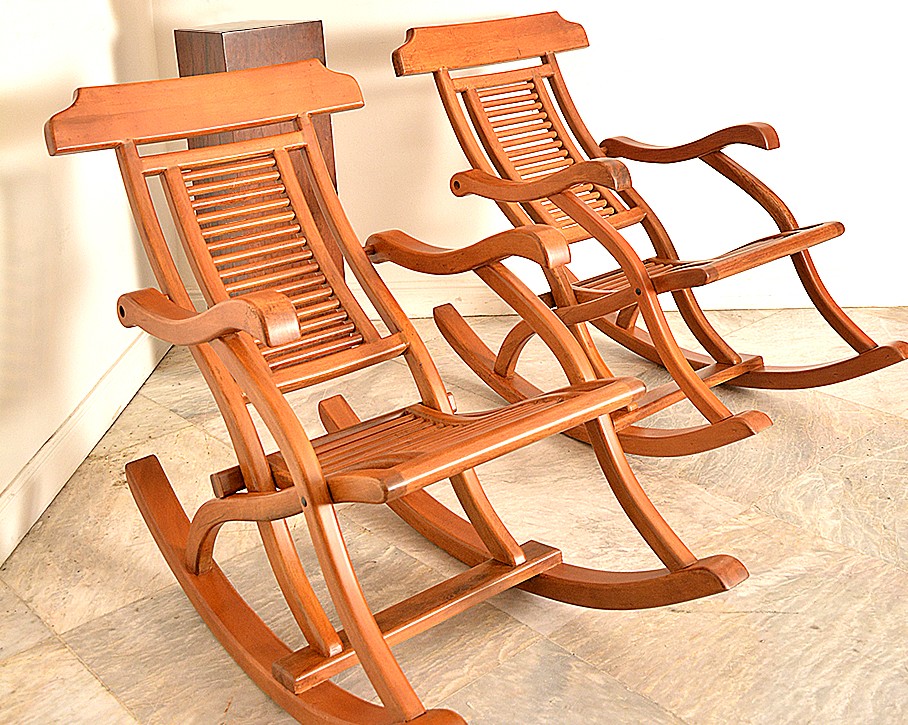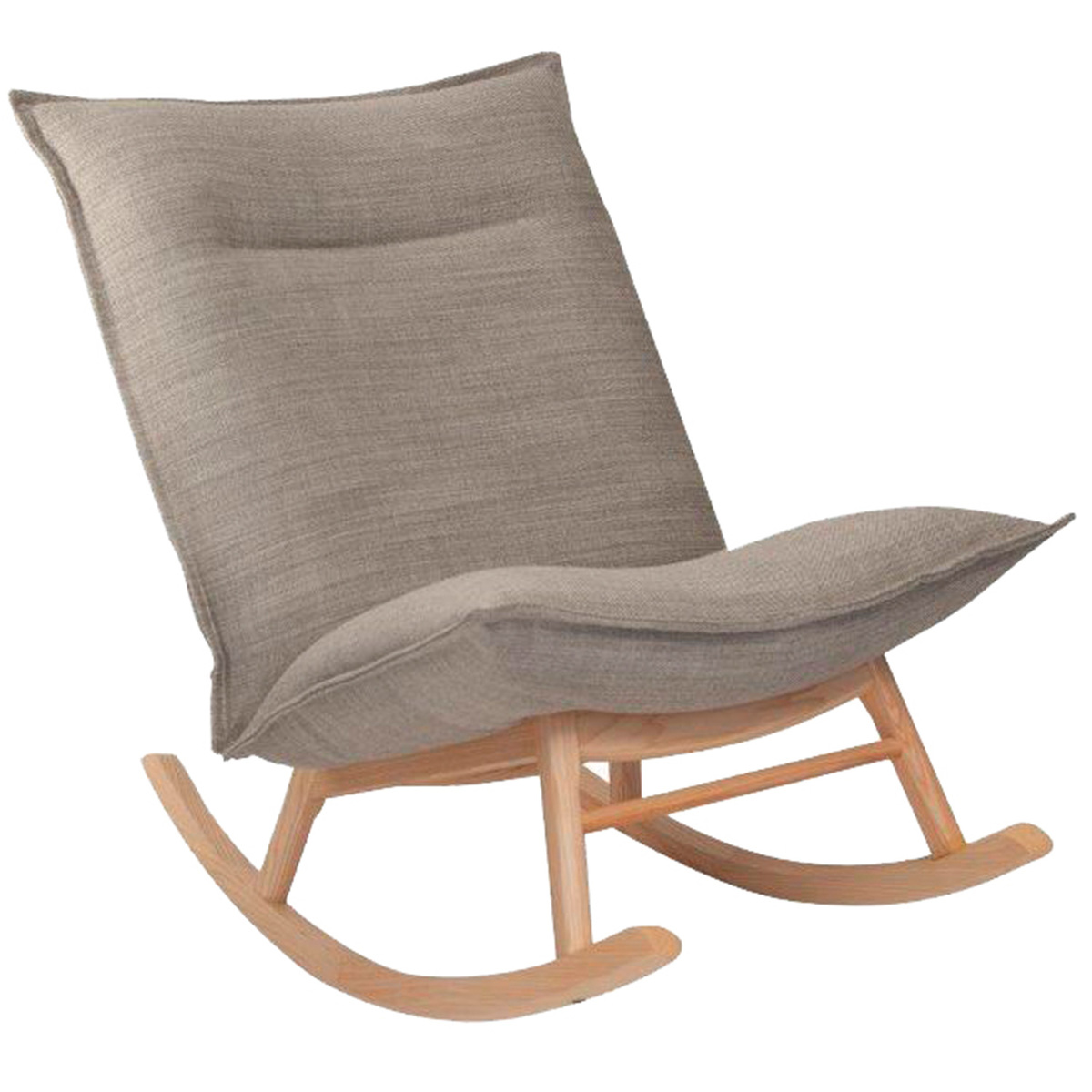History and Origins of Rocking Chairs in Cape Town

The rocking chair, a ubiquitous symbol of comfort and relaxation, has a rich history in Cape Town, intertwining with the city’s cultural development and the evolution of its furniture-making traditions. Its introduction and subsequent popularity reflect the city’s colonial past, its diverse cultural influences, and the changing lifestyles of its inhabitants.
Early Introduction and Uses
Rocking chairs were introduced to Cape Town during the Dutch East India Company’s (VOC) rule in the 17th century. Initially, they were primarily associated with the elite and wealthy European settlers who brought their furniture traditions with them. These early rocking chairs were often crafted from imported hardwoods, such as oak and mahogany, and were considered luxurious items. They were placed in parlors and drawing rooms, symbolizing status and refinement.
Prominent Makers and Retailers
Throughout the 18th and 19th centuries, several prominent makers and retailers of rocking chairs emerged in Cape Town. One notable example is the firm of John and William Taylor, who established a thriving furniture business in the city in the early 19th century. Their workshop, located in the heart of Cape Town, produced a wide range of furniture, including rocking chairs, for both local and international clientele. The Taylors were known for their craftsmanship and attention to detail, and their rocking chairs were highly sought after by the city’s elite.
Cultural Significance of Rocking Chairs in Cape Town, Rocking chair cape town
Rocking chairs have held a significant place in Cape Town’s cultural landscape, particularly within the city’s diverse communities. In the early 20th century, as the city’s population grew and the middle class expanded, rocking chairs became more widely available and accessible. They were embraced by various communities, including the Malay, Indian, and Coloured communities, who incorporated them into their homes and gardens. Rocking chairs became associated with moments of relaxation, storytelling, and family gatherings, symbolizing a sense of comfort and togetherness.
“The rocking chair, in its gentle rhythm, evokes a sense of nostalgia and connection to the past. It has been a constant companion in the lives of many Cape Town residents, witnessing generations of stories, laughter, and shared experiences.”
Types and Styles of Rocking Chairs in Cape Town

Cape Town boasts a diverse array of rocking chairs, reflecting the city’s rich history and cultural influences. From traditional designs to contemporary interpretations, these chairs offer a unique blend of comfort, aesthetics, and craftsmanship.
Rocking Chair Styles in Cape Town
Rocking chairs in Cape Town are categorized based on their materials, design, and craftsmanship.
- Wooden Rocking Chairs: These are the most common type in Cape Town, often crafted from indigenous hardwoods like Cape Mahogany, Yellowwood, or Stinkwood. The sturdy construction and natural beauty of these woods contribute to the longevity and elegance of these chairs.
- Wicker Rocking Chairs: Wicker chairs are known for their lightweight and airy design, making them suitable for outdoor settings. They are typically woven from rattan or cane, providing a comfortable and breathable seating experience.
- Metal Rocking Chairs: Modern rocking chairs in Cape Town often incorporate metal frames, adding a contemporary touch to traditional designs. These chairs are durable and weather-resistant, making them suitable for both indoor and outdoor use.
Iconic Rocking Chair Designs in Cape Town
Cape Town’s rocking chair scene is characterized by unique designs that reflect the city’s vibrant culture.
- The “Boere” Rocking Chair: This traditional design features a high back, wide arms, and a gently curved seat, providing optimal comfort and support. Often crafted from local hardwoods, it embodies the simplicity and practicality of early Cape Dutch furniture.
- The “Victorian” Rocking Chair: Inspired by Victorian aesthetics, these chairs showcase intricate carvings, elaborate upholstery, and ornate details. They often feature a high back with a rounded crest rail and elegant curves, reflecting the opulent style of the Victorian era.
- The “Contemporary” Rocking Chair: Cape Town’s contemporary rocking chairs embrace modern design principles, utilizing sleek lines, innovative materials, and ergonomic features. They are often crafted from metal, plastic, or a combination of materials, offering a stylish and functional seating experience.
Rocking Chairs in Cape Town Culture and Lifestyle: Rocking Chair Cape Town

Rocking chairs have become deeply ingrained in Cape Town’s culture and lifestyle, transcending their role as simple furniture. They are more than just seating; they embody a sense of tranquility, community, and a connection to the city’s rich history.
Rocking Chairs in Everyday Life
Rocking chairs are a common sight in Cape Town, integrated into the fabric of everyday life. They are found in homes, cafes, and public spaces, serving various purposes and reflecting the city’s diverse character.
- Homes: Rocking chairs are often found on verandas, patios, or in living rooms, offering a comfortable spot to relax and enjoy the views. They are a symbol of homeliness and a place for quiet contemplation or engaging conversations with loved ones.
- Cafes: Many cafes in Cape Town incorporate rocking chairs into their outdoor seating areas, creating a relaxed and inviting atmosphere for patrons to enjoy their coffee or tea. The gentle rocking motion provides a sense of tranquility and encourages lingering.
- Public Spaces: Rocking chairs are also found in public parks, gardens, and even on the bustling streets of Cape Town. They offer a respite from the hustle and bustle, inviting people to pause, observe, and connect with their surroundings.
Role of Rocking Chairs in Relaxation and Social Interaction
Rocking chairs play a significant role in fostering relaxation, contemplation, and social interaction in Cape Town. Their rhythmic motion and comfortable design promote a sense of tranquility and well-being, encouraging moments of quiet reflection.
- Relaxation: The gentle rocking motion of a chair has a calming effect on the body and mind, reducing stress and promoting relaxation. This is particularly appreciated in a fast-paced city like Cape Town, where residents seek moments of peace and quiet.
- Contemplation: Rocking chairs provide a comfortable space for contemplation, allowing individuals to reflect on their thoughts, feelings, and experiences. The rhythmic motion can also be conducive to creative thinking and problem-solving.
- Social Interaction: Rocking chairs are often used for social interaction, providing a comfortable and inviting space for conversations and shared moments. The gentle rocking motion can also create a sense of intimacy and connection between individuals.
Rocking Chairs in a Typical Cape Town Setting
Imagine a sunny afternoon in Cape Town. A gentle breeze rustles the leaves of a nearby oak tree, casting dappled shadows on the cobblestone streets. A couple sits on a veranda, enjoying a cup of tea and a plate of freshly baked scones. They are seated in two antique rocking chairs, their backs gently swaying in unison, creating a rhythmic soundtrack to their conversation. As they sip their tea, they share stories and laughter, their voices blending with the sounds of the city. This scene captures the essence of Cape Town’s culture, where rocking chairs symbolize relaxation, community, and the simple pleasures of life.
Rocking chair cape town – The rocking chair, a staple in many Cape Town homes, evokes a sense of comfort and relaxation. Its rhythmic motion, however, can also be unsettling, as Alfred Hitchcock’s films often demonstrate. In l hitchcock rocking chair , the chair becomes a symbol of anxiety and impending doom, highlighting the tension between tranquility and unease.
While Cape Town’s rocking chairs may not hold such sinister connotations, they still embody the duality of comfort and suspense, a reminder that even the most mundane objects can hold hidden depths.
The rocking chair is a classic symbol of relaxation, and in Cape Town, you’ll find them everywhere from bustling coffee shops to tranquil gardens. If you’re looking for a comfortable and stylish option for your home, consider the eddie bauer rocking chair with ottoman.
Its sleek design and plush cushioning make it perfect for unwinding after a long day, bringing a touch of Cape Town’s laid-back charm to your own living space.
